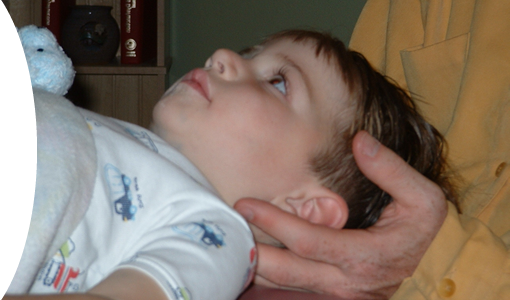A Healing philosophy, touch
By JOE BUTLER
Staff Writer
COEUR d’ALENE – Just because you’re not in a combat zone doesn’t mean your body isn’t under stress.
Just ask Dr. Don Williams, D.O., who recently opened a medical practice in Coeur d’Alene following two tours of duty in Iraq.
What he offers North Idaho residence is a specialty called osteopathic manipulative medicine, which basically consists of him using his hands to sense what’s going on with that body and then using his hands gently to encourage the body to correct itself.
“We get drawn out of our natural environment, out of a calm, peaceful state, through overstimulation,” Williams said. “I help bring the body back to its natural state.”
Williams is a licensed physician, even though osteopathic manipulation is a less common medical model.
This means he’s had plenty of training and experience in the conventional medicine and is permitted to prescribe medication or give referrals to other specialists as needed.
“I can treat any medical condition, and definitely will send you to the hospital if you’re having something like chest pains,” Williams said.
“Most of the people I treat have chronic pain. People also notice side effects from this like they’re calmer and less depressed.”
He said most modern mainstream medicine is based on a biochemical approach, meaning a focus on finding medication that can interact with the body and create a planned result.
Osteopathy has a different philosophical approach. It still follows physical rules of the human body, but also works with the flow of health within the body, to have the organs, muscles, bones and nerves all work in harmony.
It differs from chiropractic care, which requires adjustments of the spine to improve the body’s energy flow.
“This method looks at the whole body, and how it can work as a single unit.” Williams said. “It’s a very hands-on approach, but I still can fall back on medication or tests.”
He compares the body’s processes to a choir, when individual voices combine to create the entire choir’s sound. When everything works together properly, harmony is achieved.
But he said the best way to understand osteopathy is to experience it directly, although he likes to take time with every new patient explaining the methods and making sure they’re comfortable with everything.
For patient, Cathy Coyle, the whole experience has been positive. She’s already had four treatments and calls what Williams does “remarkable.”
“Your whole body goes to a peaceful place.” She said. “I already feel better.”
She visited him after growing pain in her knees, aggravated by her dog running into them. It began to hurt more and more going up stairs. “After the first treatment, I felt 50 percent better, and after the second, I felt 100 percent better,” Coyle said.
Williams doesn’t like to say how many treatments a person needs, since each plan is customized to the individual patient and what their body requires. “If I’m stuck to a pattern. I won’t allow the expression of like and good health to happen,” he said.
Interestingly, it was the patterns and predictable laws of the human body that led Williams to this path. After a successful football career and Georgia Tech, which earned him the title Academic All-American, Williams used his electrical engineering degree at Raytheon designing missile systems. “I knew I was good at math and solving problems, and it wasn’t until I was 27 that I first entertained the idea of working with the physical body,” Williams said. “The laws of the body are consistent with the laws of physics.”
He then studied at the University of New England College of Osteopathic Medicine, and became board certified in family practice and osteopathic manipulative medicine. Williams joined the Army in 1998 as an active duty medical officer. Much of his work at this time was treating soldiers in a family practice capacity. He completed his residency, and then, at a posting in New York, ran a family practice clinic and served as chief of urgent care. He’s completed two tours of duty in Iraq, once during the initial offensive and once during the current reconstruction. He was assigned as a battlefield surgeon with the 10th Mountain Division, one of the Army’s light infantry groups, and with the 2nd Battalion 14th Infantry.
As a Battlefield surgeon, he treated soldiers with acute illnesses and battle wounds. When time and conditions allowed it, he also performed osteopathic treatments. Working with the soldiers was especially challenging, since many were at such a state of high alert for so long. “Plus they have lots of heavy equipment and in hot weather,” Williams said. “They were all fighting pain, and their bodies suffered a lot of havoc. What we tried to do was provide a quite environment and bring their body back to its natural state, and this had a dramatic impact.” His efforts earned him a Bronze Star, along with two Amy commendation medals, an Army achievement medal and a promotion from captain to major. When he left the service last summer, he decided it was time to go into private practice offering classical osteopathic treatments. His clinic is at 2190 Ironwood Place, Suite B. “My job is to intimately have knowledge of every part of the human body and its function,” he said. He’s hoping to grow his patient base in the year ahead., and is always happy to talk to people about what he does. “I’ve been doing this for 12 years, and I feel like I’m still learning,” Williams said. “ The point isn’t to be locked into certain ways of thinking, but being open to the possibilities of healing.”
The above newspaper article was published in the Coeur d’Alene Press on January 18th, 2006. Used by permission.

